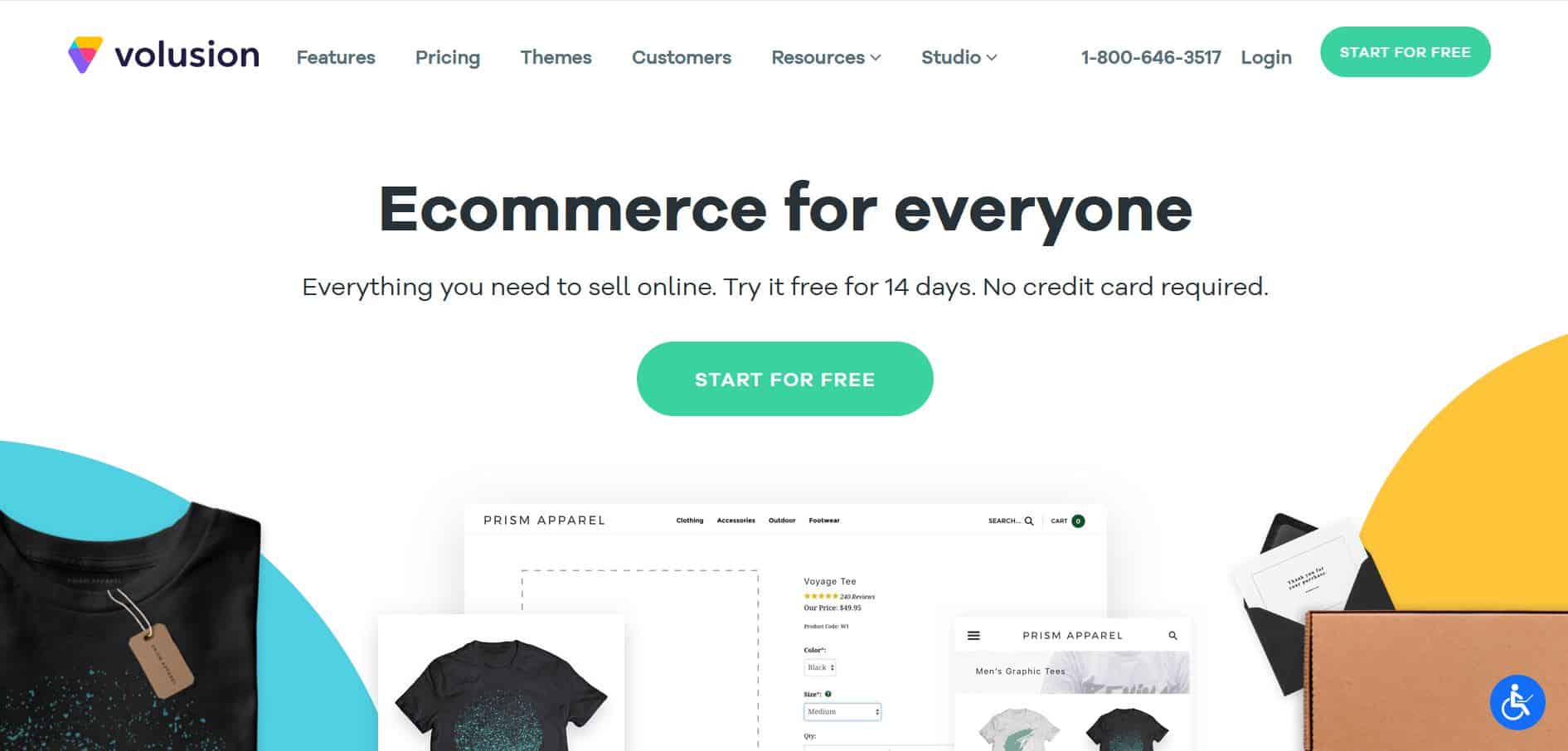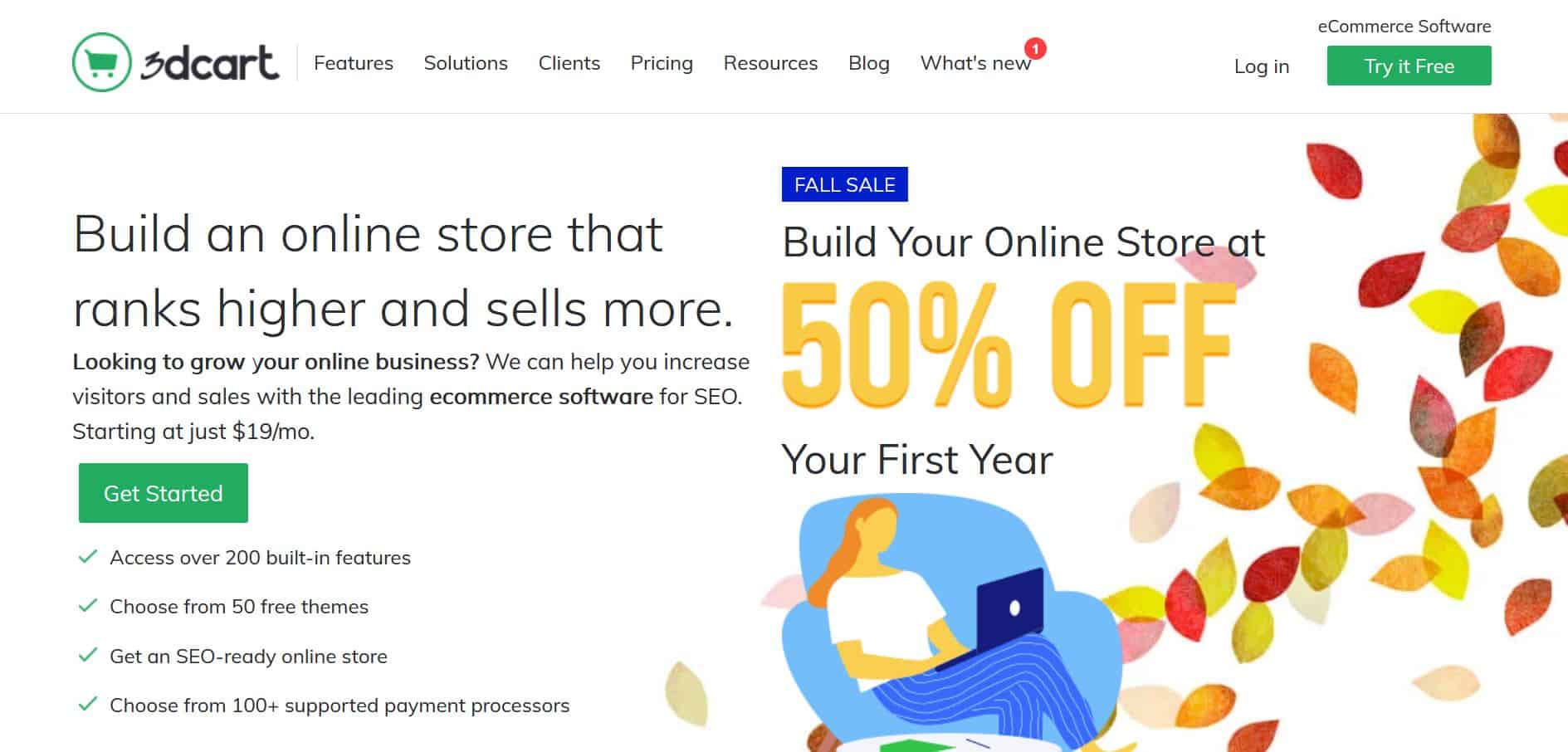Shopify is one of the most popular e-commerce platforms available. However, it isn’t the best choice for everyone. There are numerous alternatives to Shopify that businesses should consider before they commit to the former.
Why Choose Shopify?
Shopify is probably the best-known e-commerce platform available today. Its broad appeal is largely down to its accessibility. You don't need any advanced tech skills to use the platform to its full potential. You also don't need to invest in a web developer because Shopify makes it easy to build your own website even if you have no prior experience.
Coupled with the platform’s overall flexibility and the myriad ways that you can expand its capabilities, Shopify is by far one of the best e-commerce platforms available.
The Benefits Of Shopify:
Performance: Shopify is one of the most reliable platforms around. It is fast and responsive and experiences minimal downtime.
Design: As well as an intuitive interface, Shopify also offers users numerous themes that blow the competition out the water.
Usability: Shopify's user-friendly design makes it easy for new users to get to grips with.
Support: There are numerous plugins to enhance the features of e-commerce stores built with Shopify. They also have multiple certified partners providing additional tools and features.
Apps: Shopify boasts some of the best-selling apps on the market.
Dropshipping: Seamless integration with Ordoro makes starting a dropshipping business easy.
Why Should You Consider The Alternatives?
There are lots of benefits to using Shopify as an e-commerce platform. However, it is not a one-size-fits-all solution. Some e-commerce businesses will be better served by one of Shopify's competitors.
For example, suppose you already have a content management system in place. In that case, it can be a little bit galling having to pay for these features within Shopify. Similarly, freelancers and creative people will find that most of Shopify’s tools and features are redundant for them.
The good news is that there are plenty of viable alternatives to fill the gaps in the market left by Shopify. Shopify might be the biggest player in this space, but they are not the best choice for everyone.
Common Shopify Issues
Transaction fees: Shopify will charge you a 2% fee for every transaction unless you agree to process payments directly through their in-house service.
Liquid: Liquid is Shopify’s custom template markup language. Unfortunately, it isn’t as straightforward to use as it could be.
Advanced features: Shopify reserves some of its best features for the high-tier plans. For example, if you want to accept gift cards or offer real-time shipping updates, you will need to fork out on a more expensive subscription. For many small businesses, these costs are too much.
SEO tools: Shopify forces its users to adopt a relatively rigid URL structure with little room for customization. This setup can hamper SEO and make it harder to achieve high ranking performance. If information architecture is essential for your business, Shopify is a challenging platform to use.
Checkout page: One of the most common complaints about Shopify is that it doesn’t allow users to customize their checkout pages.
Shopify Alternatives
1. BigCommerce
Drag-and-drop editors are perfect for some people. They strip away all the complexity of raw coding and enable the user to focus entirely on their website’s aesthetics. BigCommerce is the ideal e-commerce platform for people who prefer to work this way.
There are numerous attractive themes available. Unfortunately, users are restricted to seven free themes. The rest are premium themes hidden behind a paywall. However, they are definitely worth the asking price.
Inbuilt content marketing features make promoting your business and increasing your conversion rates as straightforward as possible. The standard feature set is impressive. You can get much more done without having to spend money than you could with Shopify.
Another significant advantage of BigCommerce is that it enables you to manage multiple selling channels from a single dashboard. You can use BigCommerce to manage your stores on other platforms, including Facebook, Amazon, eBay, and more. BigCommerce will sync your inventory across all your online stores, ensuring that you never inadvertently oversell.
No platform is perfect. A relatively common issue with BigCommerce is bandwidth. Some BigCommerce stores load very slowly and occasionally return a bandwidth error and not load at all.
There are numerous subscription tiers available.
Prices can range from as low as $29.95 a month up to $249.95 a month. If your BigCommerce store’s earnings exceed $50,000, they will automatically upgrade you to a higher tier plan. It is vital to keep an eye on your sales figures if you choose to use BigCommerce. You don't want to find yourself facing a huge unexpected bill.
Pros
Cons
BigCommerce is an excellent platform for running a large e-commerce business. Its extensive support for SEO development makes it a good platform for companies that want to grow. Just remember to keep an eye on your sales volume.
2. WooCommerce
If you already have a WordPress website for your e-commerce business, WooCommerce is the perfect plugin for you. WooCommerce is both free and opensource; it is continuously improving as time goes on.
WooCommerce is a particularly good option for e-commerce startups and small businesses. However, this is not the best platform in terms of scalability. The free package enables new e-commerce businesses to get started. But as your business grows, you will need to pay for access to the more advanced tools WooCommerce offers.
Even the free tier of WooCommerce makes it easy to build a mobile-friendly e-commerce store. You will need to pay for hosting separate to WooCommerce. But for much less than $100, you can have a feature-rich mobile-friendly e-commerce store on your hands.
The $79, you can get access to WooCommerce Freshdesk, a slick plugging that enables the user to embed a ticketing system on their website. Many businesses have found that this ticketing assistant is the best way of providing customer support to their users. Freshdesk is just one of the many killer plugins available for WooCommerce that integrate seamlessly with WordPress.
Shopify is based around a monthly subscription model. But WooCommerce is much more flexible. You can choose the tools and features that you need a la carte, paying a one-time fee for the ones that you want.
By far the weakest aspect of WooCommerce is its troubleshooting. Should you experience any issues with your WooCommerce store, you will mostly be left on your own to sort it out. Anecdotally, WooCommerce tends to blame the hosts or third-party plugins for users’ issues with the platform.
Pros
Cons
WooCommerce is a fantastic platform and one of the best WordPress plugins available. If your website is content-heavy, WooCommerce is the ideal option for you.
3. Volusion
Volusion is a reliable and popular Shopify alternative. There are currently more than 200,000 businesses that have adopted, Volusion as their e-commerce alternative. Smaller e-commerce businesses, in particular, can benefit from Volusion's cloud-based shopping cart. You only need the most rudimentary of tech skills to get started, and there's no need for you to worry about hosting all the integration of third-party applications.
The plans that Volusion offers are based on the specific add-ons and plugins that you want to use. This makes it one of the best platforms in terms of customization. Unlike Shopify, Volusion does not charge any transaction fees for sales made through the platform.
Among the best features that bird offers are seamless eBay integration and one-page checkout. In terms of your e-commerce store design, Volusion offers numerous high-quality templates that are available to all tiers.
Something that you do need to be careful of when using Volusion is the charges for exceeding your bandwidth allocation. These charges can be as high as $7 per gigabyte if you exceed your allocated limits.
Assuming that you stay within your limits, the cost of using Volusion should be between $15 and $135 each month. The mobile app enables you to manage your store on the go and is available to all users.
Volusion is by far one of the most feature-rich and best value Shopify alternatives out there. It's not quite as simple to use as some of the other options. You will need a basic grasp of coding to get the most out of it. This makes Volusion unsuitable for novice shop owners, but an excellent choice for those who already have experience in this area.
Pros
Cons
Volusion is an excellent option for many businesses. You will need a basic grasp of coding to be able to use the platform, but it is more than worth it. The mobile app is fantastic and makes it easy to manage your business while on the move.
4. LemonStand
LemonStand is an excellent fit for medium to large e-commerce businesses. All of the plans available provide users with core features. The main difference between the different plans is the number of monthly orders that the store is allowed to process.
While LemonStand is definitely highly customizable and one of the most versatile e-commerce platforms on the market, it does come with a very steep learning curve. If you don't know how to code, you're going to need to hire a developer if you want to utilize LemonStand. With that in mind, this is one of the easiest platforms to migrate to from another platform. Anyone who already has a store set up with BigCommerce, Magento, or Shopify will find the transition to LemonStand simple and straightforward.
The costs of a LemonStand subscription start at $19 and can go as high as $399. Something that anyone considering using LemonStand needs to be aware of is the monthly order limits. Each tier of LemonStand subscription comes with an order limit that stores are required to stick to. If you want to take advantage of unlimited orders, anything over 1000 a month, you will need to sign up for the most expensive premium plan.
Another common grape with LemonStand is that the add-ons and templates bundled with the packages are lacking. The best premium templates can cost a couple of $100, an unrealistic figure for many smaller e-commerce businesses.
Pros
Cons
5. 3dCart
3dcart is one of the best Cloud hosting shopping cart platforms on the market. 3dcart is absolutely filled to the Brim with excellent features and a flexible pricing structure that makes it accessible for businesses of all kinds. 3dcart offers unlimited product storage, making it one of the most scalable platforms on the market. It also boasts industry-leading security features.
The costs of using 3dcart can vary from $19 a month to $229 a month. Suppose you are willing to shell out on the premium subscription packages. In that case, you will gain access to basic SEO tools, along with numerous other features that other e-commerce platforms are lacking. Features like the abandoned cart email, support for subscription-based purchases, coupons, and personalized products are just some of what is available to premium subscribers.
Unfortunately, despite supporting multichannel synchronization, order tracking, and drop shipping, no product search functionality is available. This might be a deal-breaker for some people.
E-commerce websites that have only just got up and running will definitely appreciate the versatility of 3dcart's platform. Uniquely, they also offer an in-house web design service. This service will not only ensure that your SSL certificate and other admin are sorted; they will also tailor your shop’s user interface and user experience to your target audience.
Pros
Cons
6. BigCartel
BigCartel has gained popularity amongst artists and other freelance creatives, thanks to its affordability and feature set. With support for inventory tracking and unlimited bandwidth, along with CSS and HTML customization, BigCartel provides one of the most extensive toolsets of any e-commerce platform.
Compared to Shopify, its feature set is slightly more limited. However, it is much more affordable and works much better for smaller businesses and individual entrepreneurs. Google Analytics is integrated by default, while Facebook and PayPal support is included with zero coding experience.
There are no additional transaction fees to worry about with BigCartel. However, PayPal will charge you additional fees for any orders through an e-commerce store. Another drawback of using BigCartel is that there is no support for live chat or even phone support. This means that getting support when you need it can be needlessly difficult.
Premium plans are reasonably priced, starting at $9.99 a month and rising to just $29.99 a month. There is no inventory search function available, but for shops with a relatively small product line, this is the perfect platform.
Pros
Cons
7. Magento
Magento is another free and open-source e-commerce platform. It is aimed at medium to large businesses and is best suited to those who have access to in-house programmers. The small companies and individuals with little to no coding experience, this is probably not the best choice.
But for mid to large-sized businesses with access to knowledgeable coders, this is one of the best platforms out there. The level of flexibility and scalability offered by Magento is truly impressive, even if they require some prior knowledge to utilize.
The basic version of Magento is completely free of charge. However, it offers several years, including an enterprise edition that costs between $15,000 and $50,000 each year.
Pros
Cons
8. Wix
Wix provides one of the most easy-to-use interfaces around. Coupled with their highly customizable and affordable plans, this is one of the best e-commerce platforms out there for businesses of all sizes. The 100 or so templates that you get to start with are all excellent in quality. Numerous third-party apps integrate seamlessly with the Wix platform.
There are two ways that you can set up a website using Wix. The first involves the use of an automated assistant and an accompanying questionnaire. Alternatively, you can choose to set everything up and customize it yourself. A largely drag and drop interface makes this as easy as possible.
Pros
Cons
9. SquareSpace
Squarespace is the ideal platform for people who have a reasonably small product catalog. The website builder included with the platform supports various templates and themes and makes it easy to customize your website to your liking. With just a little bit of tweaking, you can create something truly unique and stands out from other e-commerce stores.
For as little as $26 a month, you can get access to all the basic features. These basic features are actually quite impressive, including unlimited pages, blogs, storage, and much more. You will also get $100 of Google AdWords credit.
Unfortunately, Squarespace is limited to stripe and PayPal in terms of payment processors. There are no additional transaction fees to worry about on the platform itself, but both of the supported payment providers will charge transaction fees.
Pros
Cons
10. Prestashop
Prestashop is an ideal platform for any e-commerce business that is operating on a tight budget. It's not quite free, you will have to pay for web hosting and a domain separately. However, the actual Prestashop platform itself does not charge an entry fee.
As you would probably expect from a free platform, Prestashop does not offer nearly as many templates or themes has some of its competitors. However, it is one of the most usable and user-friendly free e-commerce platforms on the market.
Prestashop is not a particularly scalable platform. But, it is one of the best platforms out there for e-commerce businesses that are just getting started.
Pros
Cons
Shopify is an excellent e-commerce platform, but it isn’t the only option out there. The platforms above cater to different audiences, but they all come highly recommended. There is no single ‘best’ option. The best option for any business will depend on the business itself. If you're looking for an email marketing service for your shopify store than I recommend you check out our guide to the top services for Shopify users.










